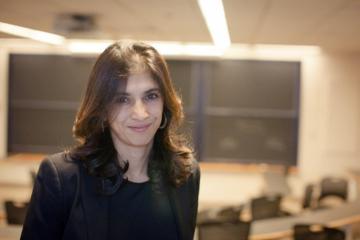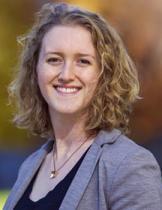
Affiliate Spotlight: Paul Niehaus

To read the full profile, please download the PDF version here.
Paul Niehaus is a co-founder and president of GiveDirectly, co-founder of fintech start-up Segovia, and professor of economics at the University of California, San Diego. Named one of 100 leading global thinkers by Foreign Policy magazine in 2013, Paul represents a new generation of development economists who think creatively about ways to improve the world.
Paul and his research collaborators target questions whose answers can have an impact on a broad population and be immediately useful to policymakers. “My teammates and I look for big turning points,” he explains, “often government decisions, where having more evidence could correct a widespread misconception or guide a better choice.”
This approach has led Paul and his frequent co-authors and J-PAL affiliated professors Karthik Muralidharan (University of California, San Diego) and Sandip Sukhtankar (University of Virginia) to examine, for example, how the creation of new infrastructure for India’s Direct Benefit Transfer program could transform the roughly 10 percent of GDP the country spends on its safety net and subsidy regimes. They do so using “at-scale” evaluations: randomized evaluations of large reforms conducted as they are rolled out.
In a recent paper Paul and Karthik argue that at-scale evaluations are valuable for two reasons: First, they provide an opportunity to learn about issues of direct importance to policy, since the programs they study are already being funded and implemented; and second, they predict large-scale outcomes in a way that smaller-scale evaluations may not.
Those who follow the debate over universal basic income (UBI) or unconditional cash transfers will also be familiar with Paul’s charitable work. Paul co-founded GiveDirectly—the leading international NGO specializing in enabling donors to send money directly to those who need it. GiveDirectly has promoted the use of randomized evaluations to test impact with over a dozen studies completed or in progress, including head-to-head tests comparing cash to conventional aid programs as well as the largest evaluation of UBI to date.
Paul is conducting this evaluation with J-PAL co-founder Abhijit Banerjee (MIT) and J-PAL Africa Scientific Director Tavneet Suri (MIT), as well as GiveDirectly co-founder Michael Faye. The evaluation will measure the effects of basic income delivered over twelve years to entire communities in Kenya, and compare these to the effects of the shorter-term transfers that are more common today. GiveDirectly began delivering transfers in 2018 and preliminary results will be available within one to two years.
“The core premise of GiveDirectly is that we shouldn’t start by assuming we can find better ways to help poor people than they could find for themselves,” Paul argues. “Currently that’s how close to 100 percent of foreign aid works—but given the totality of the evidence, we think the burden of proof should be the other way around.”
When a problem cannot be addressed with a randomized evaluation, “don’t be that person with a hammer,” he warns. Building fundamentally respectful and empathetic relationships with research partners and communities underpins his research ethos. “You want to build trusting relationships with people who see that you are genuinely thinking about what’s right, even if at the moment it may not happen to be the thing you do.”
Paul’s work demonstrates the value of practical research and evidence in informing policy at a national scale. As an economist and leader in the financial inclusion space, his career has been defined in part by his willingness to take initiative. “The space of folks with opinions about what someone else ought to do is already pretty crowded! There can be a lot of value in just getting out there and doing the hard work that you think needs to be done.”
Paul Niehaus has been a J-PAL affiliate since 2011. Read more about him and his research here.


